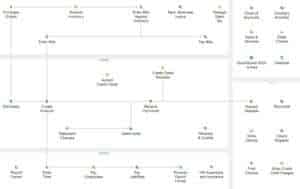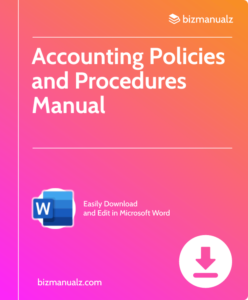Can I Use QuickBooks Instead of an Accountant?

QuickBooks integrates with other business tools, making it a handy platform for managing many facets of a small business. QuickBooks isn’t a replacement for a professional accountant or CPA. It can handle basic bookkeeping functions, but complex financial matters still require specialist advice. Can I use QuickBooks instead of an accountant?
The Benefits of Using QuickBooks for Small Business Accounting

Image copyright “Les Finances”
QuickBooks offers many perks for small businesses.
- It simplifies accounting with automated tasks like invoicing and expense tracking.
- It provides reliable financial reports, letting businesses make informed decisions.
- It saves time and reduces errors for increased efficiency.
- It allows for easy collaboration with accountants and tax experts.
Make the most of QuickBooks and stay compliant with tax laws by consulting an accountant. A qualified accountant that knows your business can help you leverage QuickBooks to successfully streamline your accounting.
Don’t miss the chance to optimize your finances! Seize the convenience of QuickBooks while still taking advantage of an accountant’s expertise. Contact us today to discover how we can help you reach financial success.
Understanding the Limitations of QuickBooks
To understand the limitations of QuickBooks, delve into the importance of expertise in accounting principles. Discover the nuances of financial analysis, tax regulations, and compliance challenges. Uncover the complexities of managing payroll, bookkeeping, and financial reporting.
The Importance of Expertise in Accounting Principles
Accounting principles are essential. Without understanding them, financial analysis and decisions might be wrong. Expertise in this field helps you:
- Analyze financial statements accurately.
- Identify mistakes and discrepancies.
- Follow relevant regulations.
- Offer valuable insights on budgeting, forecasting and tax planning.
Moreover, expertise in accounting principles improves efficiency in financial operations. With the right knowledge, professionals can:
- Streamline processes.
- Implement controls.
- Optimize resource allocation.
A real-world example that proves the importance of expertise in accounting principles is about a small business owner. They were confident QuickBooks would handle their bookkeeping easily. But, they were wrong! Due to lack of knowledge, they made several mistakes while entering data.
The wrong financial reports led to wrong decisions and issues with tax filing. Only with professional help from an accountant, who had expertise in accounting principles, could they fix the errors and get their finances back on track.
When QuickBooks Can Be a Suitable Alternative to Hiring and Accountant
To effectively manage your finances and cut costs, consider using QuickBooks instead of an accountant. In this section, we will explore how QuickBooks can be a suitable alternative when dealing with small businesses that have simple financial operations. Additionally, we will delve into the cost savings that small business owners can enjoy by utilizing QuickBooks.
Small Businesses with Simple Financial Operations
Small businesses with simple financial operations can use QuickBooks instead of hiring an accountant. It helps them track income and expenses, manage invoices and payments, and generate financial reports. QuickBooks also assists with tax preparation, making filing easier. Moreover, it integrates with other business applications and has a user-friendly interface.
No need to pay for an accountant! QuickBooks lets small businesses save money on salary expenses. Invest in purchasing the software or pay a subscription fee – it’s worth it! Get your finances sorted with QuickBooks and have a laugh on the way to the bank.
Cost Savings for Small Business Owners
Small business owners can save money by using QuickBooks instead of employing an accountant. It has many features that save time and cash. Let’s see some:
- Automated Bookkeeping reduces manual data entry.
- Financial Reporting Tools generate exact reports fast.
- Invoicing and Billing streamlines payment processes.
- Tax Preparation simplifies filing and compliance.
- Expense Tracking helps monitor expenses and budgets.
These features give businesses great cost savings, replacing the need to get an accountant. QuickBooks allows businesses to reduce external help, saving money and time.
Moreover, QuickBooks is flexible and accessible. Business owners can access their financial info anytime, anywhere. It also has customizable options, so businesses can customize it for their needs.
QuickBooks began in 1983, when Scott Cook and Tom Proulx created it. It was popular due to its user-friendly design and affordability. It provided small businesses with a better alternative than traditional accounting. Today, QuickBooks is still a leading software, offering cost savings with accuracy and efficiency.
When QuickBooks just can’t do it, hiring an accountant is necessary. Complex financial matters require a professional.
Instances When Hiring and Accountant is Necessary
To navigate complex financial transactions and reporting requirements, as well as ensure accuracy and compliance with tax laws, hiring an accountant becomes necessary. Delving into instances where an accountant is necessary, we explore the challenges posed by complex financial transactions and financial reporting requirements, as well as the importance of accuracy and compliance with tax laws.
Complex Financial Transactions and Reporting Requirements
Complex financial transactions and reporting requirements can be overwhelming. To ensure accuracy and compliance, businesses need an accountant.
Here’s why:
| Column 1 | Column 2 |
|---|---|
| Complex Financial Transactions | Reporting Requirements |
| – Mergers and acquisitions | – Statutory filings |
| – Financial statement consolidation | – Audit preparation |
| – Foreign currency transactions | – Tax return submissions |
Accountants have the expertise to handle complex financial transactions. They accurately record assets, liabilities, and equity. Also, they consolidate financial statements for decision-making.
Accountants also help with reporting requirements. They ensure all statutory filings are completed and assist in audit preparation. They organize financial records and ensure compliance with auditing standards.
Plus, accountants help with foreign currency transactions. They have the knowledge required to translate and record these transactions into the business’s accounting system.
Pro Tip: For complex financial transactions and reporting requirements, get help from an accountant. They ensure accuracy and keep your business compliant with regulations. Who needs a magic eight ball when you can hire an accountant to predict your tax fate with unerring accuracy?
Ensuring Accuracy and Compliance with Tax Laws
Hiring an accountant is a must when it comes to accuracy and tax law compliance. They possess the knowledge and expertise to make sense of the complex world of taxes. Plus, they understand ever-changing regulations and help individuals and businesses stay on top of their tax obligations.
Accountants guarantee accurate and timely filing of tax returns. Plus, by combing through financial records, they can spot potential tax savings. This allows individuals and businesses to lower their liabilities while adhering to the law.
Accountants are also key players in staying compliant with tax laws. They make sure that all documents and forms are filed correctly so as to avoid penalties or legal action. With their deep understanding of taxation, they help individuals and businesses steer clear of costly mistakes that might lead to audits.
On top of this, accountants offer help with long-term financial planning. They analyze data, recognize trends, and give strategic advice on how to achieve financial goals within the boundaries of tax laws. They are more than just form-fillers – they serve as advisors who can guide individuals on investments, budgeting, retirement planning, and more.
Pro Tip: When hiring an accountant, pick someone who is specialized in your industry. This way, you can make the most out of their expertise and guarantee accurate reporting while following all relevant tax regulations. QuickBooks may be useful, but an accountant is like Batman – necessary for achieving the right balance and saving the day financially.
Finding the Right Balance: Using QuickBooks in Conjunction with and Accountant
To achieve the right balance in using QuickBooks instead of an accountant, leverage the software’s capabilities for data organization and basic reporting. Then, engage an accountant for in-depth analysis and strategic financial planning. This combination ensures efficient management of your financial records and expert guidance for a comprehensive financial strategy.
Leveraging QuickBooks’ Capabilities for Data Organization and Basic Reporting
QuickBooks is a great tool to organize data and create simple reports. It comes with a range of features that help manage financial info. Let’s explore how it works for data and reporting.
Data Organization: QuickBooks stores all financial records in one spot. You can easily add, categorize transactions, track expenses, and generate reports. This simplifies organizing your finances and keeps accuracy.
Basic Reporting: QuickBooks makes creating balance sheets, income statements, cash flow statements, and more very simple. These reports give insights into your company’s finances and help make decisions.
QuickBooks also has some special features that save time. Automated invoice creation and payment reminders are just a few of them. The software integrates with other tools like payroll systems or CRM software.
In 2012, QuickBooks launched a cloud-based accounting solution. This updated allowed businesses to access financial data from any device with and internet connection. Now, many businesses depend on QuickBooks to simplify accounting and up efficiency.
Engaging and Accountant for In-depth Analysis and Strategic Financial Planning
Engaging a professional accountant can provide many strategic benefits for businesses. With their analytical skills, they can offer thorough evaluations of financial data, helping organizations make decisions wisely. Accountants can identify areas for improvement and suggest strategies to increase profits. Working with and experienced accountant gives businesses a comprehensive view of their financial situation.
Accountants bring a fresh outlook to financial management. They scrutinize cash flow patterns, detect trends, and monitor expenses closely. This helps them spot risks or opportunities that may have been overlooked. Furthermore, accountants can create budgets and forecasts based on reliable data, enabling businesses to set achievable goals and use resources efficiently.
Accountants can also help with strategic financial planning. They offer tax advice, helping companies adhere to regulations while minimizing taxes. They examine investment prospects and suggest the best ways to allocate funds for long-term success. Their expertise goes beyond simple number-crunching; they contribute meaningful insight into the overall financial health of and organization.
Harvard Business Review (HBR) promotes the value of engaging an accountant in the decision-making process. HBR emphasizes the importance of expert financial advice for strategic planning and sustained growth. Choose an accountant shrewdly, because the wrong choice could make your books more complicated than a circus contortionist!
Making and Informed Decision for Your Business’s Accounting Needs
Making a wise choice for your firm’s accounting needs is key to its financial success. QuickBooks can be helpful, but it may not be enough to replace an accountant. QuickBooks has features & functionalities that can help you with tracking income & expenses, generating reports, and dealing with invoices. Yet, some complex financial matters may need the expertise of a professional.
Accountants can give you valuable info, make sure you meet tax laws, analyze data, and suggest ways to grow your business. Plus, they can help you with changing tax rules, reducing risks, and provide advice for your unique needs.
Thus, QuickBooks is a great way to handle bookkeeping tasks, but you should talk to an accountant to ensure your financials are accurate & reach your business’s financial potential.
Pro Tip: Use both QuickBooks & an accountant to get the best of both worlds!
Frequently Asked Questions

Q: Can I use QuickBooks instead of an accountant?
A: QuickBooks can handle the basic financial tasks of managing your accounts, tracking expenses, and generating financial reports. However, it cannot replace the expertise and guidance provided by a professional accountant. It is still advisable to consult an accountant to ensure accurate financial recording, tax compliance, and strategic financial planning.
Q: Is QuickBooks user-friendly for someone without accounting knowledge?
A: Yes, QuickBooks is designed to be user-friendly, even for individuals without formal accounting knowledge. It offers a user-friendly interface, intuitive navigation, and provides step-by-step guidance for setting up and managing your finances. QuickBooks also offers tutorials, help centers, and customer support to assist users with any questions or issues they may encounter.
Q: Will QuickBooks save me money compared to hiring an accountant?
A: QuickBooks can offer cost savings compared to hiring a full-time accountant. It automates many accounting processes, reducing the need for manual data entry and lower the possibility of errors. However, it is important to consider the value an accountant adds in terms of financial advice, tax optimization, and long-term financial planning. Hiring an accountant can provide strategic insights and help you make informed financial decisions.
Q: Can QuickBooks handle complex accounting tasks?
A: QuickBooks is robust accounting software that can handle a wide range of accounting tasks. It can manage invoicing, bill payments, inventory tracking, payroll, and more. However, for highly specialized or complex accounting requirements, it is advisable to consult an accountant or consider integrating QuickBooks with industry-specific software or add-ons to meet your specific needs.
Q: Can QuickBooks help me file my taxes?
A: Yes, QuickBooks provides functionalities to generate the necessary reports and financial statements required for filing taxes. It can help streamline tax preparation by organizing financial data, tracking deductible expenses, and generating tax-ready reports. However, it is essential to consult a tax professional or accountant to ensure accurate tax compliance and to maximize available deductions.
Q: Can QuickBooks replace the need for and external auditor?
A: QuickBooks can generate various financial reports that may be useful during and audit. However, it cannot replace the role of and external auditor who performs and independent assessment of your financial records, internal controls, and compliance with accounting standards. External auditors provide assurance to stakeholders regarding the accuracy and integrity of financial statements, which QuickBooks alone cannot provide.
















Leave a Reply